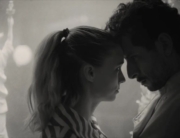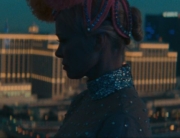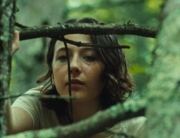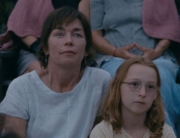People often talk about a piece of art being “timely.” Yet I doubt anyone involved in the preproduction of Call Jane could have imagined how, well, timely the movie would be. Set in 1968, it tells the story of the Jane Collective, a real-life underground network of women who provided safe abortions before the Supreme Court’s 1973 Roe v. Wade decision protected women’s right to choose. Oh wait, the Supreme Court struck down that decision a few months ago. Everything old is new again.
Call Jane is told through the experience of Joy (Elizabeth Banks), a woman who seems like she is living the 1960s American dream. Her husband, Will (Chris Messina), is a lawyer on the rise at a big law firm. They live in a lovely home in a nice Chicago neighborhood, and their 15-year-old daughter, Charlotte (Grace Edwards), is the light of their lives. And Joy is pregnant.
That’s where things become complicated. Joy’s pregnancy causes her to develop a potentially fatal heart condition, and the only way to save her life is to have an abortion, which is illegal. The all-male hospital board refuses to grant her a medical exemption that would allow her to terminate her pregnancy, and her only other choices are to find two psychiatrists who are willing to declare her insane or throw herself down the stairs to induce a miscarriage. Those don’t work out, and a visit to a back-alley abortionist ends when Joy runs off, understandably scared by the grimy, dark room and grim reaper-like doctor. Then she stumbles upon a small flier telling pregnant women who need help to “Call Jane.” With no other options left, Joy makes the call.
After she’s picked up by Gwen (Wunmi Mosaku), a member of the clandestine group, Joy is driven blindfolded to an unknown location, where she pays the $600 fee and is brought into a space that at least resembles a legit examination room. Doctor Dean is brusque, but seems competent, and, most importantly, explains to Joy what he is doing each step of the way.
This is the most striking part of the movie. In most movies or TV shows where characters have abortions, we usually see a woman go into a clinic, then someone picks her up and says, “You okay?” and she says, “Yeah, I think so,” and that’s it. But this film departs from that and manages to demonstrate, without becoming violent or exploitative, how an abortion is done. In her performance, Banks reveals the flickers of fear and pain that Joy experiences, but in the end, as she later tells a frightened young woman who has turned to the Janes for help, “It’s only 20 minutes out of your whole life.” The implication, of course, is that the consequences of an unwanted pregnancy last a lot longer.
Virginia (Sigourney Weaver), the organization’s leader, doesn’t take no for an answer when she makes a request. So soon Joy finds herself reluctantly shuttling other desperate women to the Janes for abortions. But her reluctance turns to passion as she becomes more fully immersed in the group’s cause, and even takes on an unexpected kind of leadership role.
Banks has had a long career, including turns as a director, but this may be her best work yet. At first, Banks’s Joy is judgmental about the women who seek abortions with the Janes. But as she begins to hear their stories, she learns that everyone has their reasons and deserves help. Her belief in the cause helps her find meaning in her life beyond her family, revealing a level of competence and confidence that might otherwise have remained untapped. Everyone else in the cast shines as well. Weaver seems born for the forceful Virginia, and Mosaku displays grace and patience as the only Black woman in the collective. Cory Michael Smith is quirky and shady as the Janes’ go-to doctor with his own set of secrets.
I wouldn’t quite use the word “heavy-handed,” but Call Jane does make its points very, very clearly. It illustrates the social and political upheaval of the 1960s by having Joy quite literally exit a swanky, Mad Men–era party and walk directly into a clash between the yippies and the police during the 1968 Democratic Convention. Joy brilliantly edits Will’s law briefs, so we understand that she could have had a successful career. She rocks out to the Velvet Underground while making dinner, so we know that she’s not a regular mom, she’s a cool mom. Did you notice that this movie seems to be mostly about privileged White women? Don’t worry, there is a scene where Virginia tells an infuriated Gwen that she knows they are a bunch of White women making decisions about who gets an abortion, and Gwen makes the point that when matters become about money, it’s always women of color who suffer. So that’s covered. It sometimes feels like the movie’s creators made a list of potential questions or criticisms and made sure they addressed them all.
Call Jane is a fast-paced, absorbing film that tells its story well, but for a movie about such a fraught topic, it has a surprisingly low-stakes vibe. I never felt like Joy and her cohort were truly in jeopardy of being caught. Virginia makes a few vague references to the collective being “protected by mobsters,” but we don’t see what that means. Even when those close to Joy find out what she is doing, they get over it fairly quickly. In many ways, it feels like a procedural: “How to Run an Underground Abortion Network.” Which might come in handy in the near future.







Leave A Comment